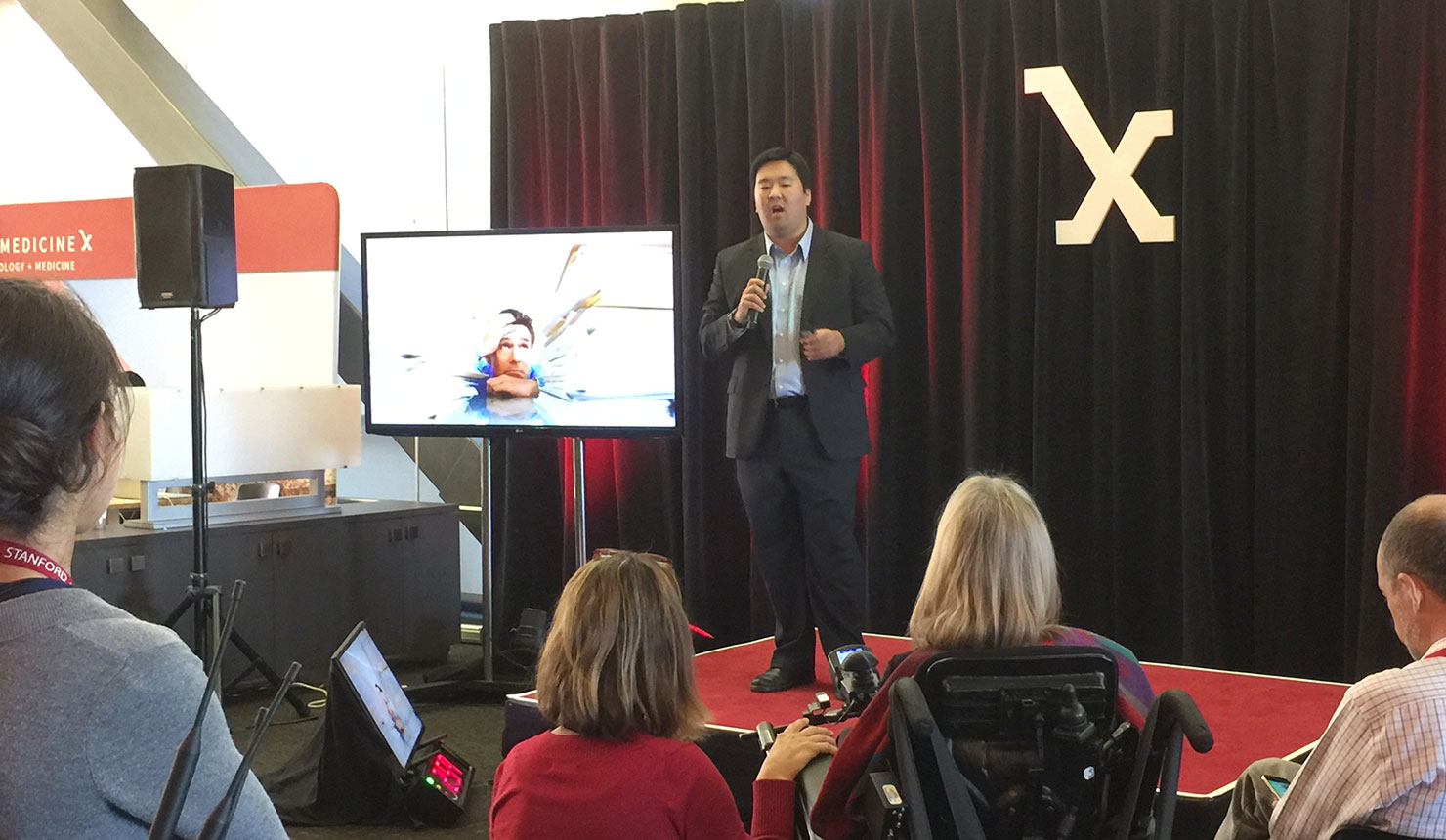With the confidence gained from pitching his proposal to a panel of faculty and fellow students during the Make a Difference (MaD) Project and Symposium—marking the culmination of the first-year Patients and Populations course—David Leander ’19, traveled to Palo Alto, California in September and presented his MaD proposal at Stanford Medical School’s Medicine X conference. The conference is one of the first to focus on emerging technologies in medicine.
Leander’s five-minute talk and slide presentation made the case for integrating into the first- and second-years of medical school the use and management of electronic health record (EHR) documentation software in preparation for the third-year, which is typically when students encounter that necessary, but often frustrating, hurdle.

Along with describing his background in health care IT, he presented an overview of current data and literature supporting physicians’ attitudes when encountering the administrative burden of EHRs. Citing a Stanford Medical School study, which found third- and fourth-year medical students use EHRs 3.5 hours each day during rotations, Leander asks: “How do medical students go from not using this complex system to being expected to use it well everyday?”
Inspired by Geisel’s On Doctoring program—a two-year course dedicated to the role of the physician in both the clinical setting and in the community—and the problem-based learning format of the first- and second-year curriculum, Leander sees an opportunity to translate the clinical information medical students receive as a PDF into an EHR. “It will not be given to us nice and neat in a PDF in the future. Why not just put it there now? We should begin using the EHR format during our first- and second-years rather than waiting.”
Earlier this summer, Leander met with the On Doctoring course directors to discuss his idea and to devise first steps in moving his project forward. “I have a faculty mentor, Dr. Todd Morrell, an emergency medicine physician at Dartmouth-Hitchcock who also works on EHRs there,” Leander says. “Our first project is to take the clinical write-up we do in On Doctoring, which is now in Microsoft Word, and do it in Epic with simulated patients—we’ll log in, find our patients, and write-up the clinical evaluation. This will teach first- and second-year students how to use this at a base level.” Epic is an EHR software widely-used by health-care systems.
As an aspiring physician, Leander appreciates the Medicine X philosophy—everyone is included—which means there is a high level of patient participation at the conference. With more than 20 percent patient participation, Medicine X exceeds most academic medical conferences, which average less than five-percent patient participation.
“There were patients, tech people, and health-care providers creating a great synthesis,” he says. “It was very diverse in that sense; everything was focused around the co-creation of health care—there was less sense of a hierarchy and more of an attitude that we are all working together. I really liked that.”
Leander says he enjoyed meeting other conference participants, and was delighted to further share his ideas, particularly with a group of interested Australians, “who approached me after my talk to find out more about EHRs.” Australia’s use of EHRs is in an early stage of integration.
He credits the Geisel community for helping him move both his project and presentation forward. “Faculty has been so supportive of this process. Dr. Sirovich was very positive and open from the beginning about my MaD idea and how to move it forward. She also helped me fine-tune my Medicine X presentation,” Leander says. “The On Doctoring faculty has also been open to implementing my idea. That’s part of being at Geisel—we are a small community that is open to new ideas.”